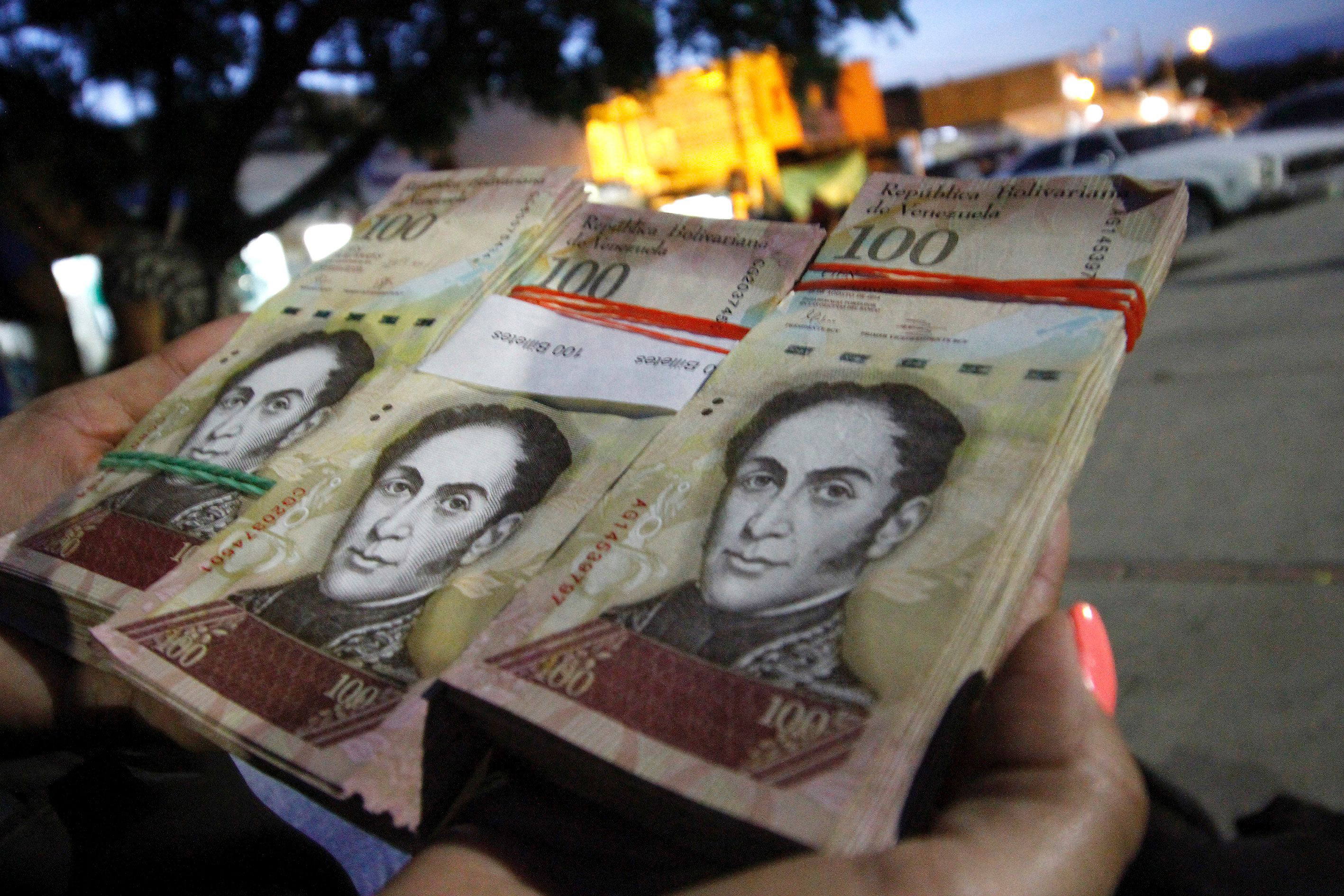
When Hugo Chavez took office in Venezuela in 1999, he promised his compatriots many wonders, from a hemispheric “Bolivarian” alliance against imperialism to 21st-century socialism. Free trade was not part of the deal. So it couldn’t have come as a total shock when on Decembrt 2, four South American nations ruled to suspend Venezuela from the continental trade compact to which it never ought to have been admitted.
And yet, for the keepers of the Bolivarian Republic, the ouster from Mercosur might have been a diplomatic outrage. Venezuelan President Nicolas Maduro, who succeeded Chavez in 2013, called the move a “coup”; Foreign Minister Delcy Rodriguez denounced it as “an illegal action” and vowed to appeal. Assorted sympathisers and fringe militants as far away as Uruguay and Paraguay joined the chorus.
What’s at stake isn’t the future of regional commerce. Venezuela’s economy is such a shambles -- merchants have taken to weighing currency instead of counting it -- that trade in any conventional sense of the word ceased to matter long ago. But the choler in Caracas and the initiative by Venezuela’s once-accommodating neighbours said a good deal about the state of play in Latin American relations, where over a decade of diffidence and indulgence before the region’s stumbling autocracy has given way to umbrage and confrontation.
Sure, Chavez, had long pushed for a seat in the region’s signature commercial union, but less to join the compact than to subvert it. As early as 2007, he spoke of trying to “decontaminate” the block of its “neoliberal” bent. Instead, he saw Mercosur membership as a credential to raise Venezuela’s standing in the Americas even as his government eroded democratic rights, jailed opponents, and stunted economic liberty at home. Such behaviour ran counter to Mercosur’s charter, which by the Ushuaia Protocol restricted membership to countries with “fully functioning democratic institutions,” and called for sanctions in case of a breakdown of democracy.
Clearly, Venezuela was an outlier. And yet, because criticising an allied nation was long an unstated taboo in Latin America -- and practically a code of honour during the left’s governing heyday over the last decade -- neither Chavez nor Maduro needed to worry about diplomatic blowback, much less the migraine-inducing fine print of trade treaties. Four years after its backdoor induction to the trade bloc -- a legally questionable maneuver that badly roiled hemispheric diplomacy -- Venezuela still hadn’t bothered to adhere to adhere to Mercosur’s basic precepts, including the founding Treaty of Asuncion and the common external tariff. “Venezuela never should have been allowed to join,” said Brazilian diplomat Paulo Roberto de Almeida, who heads the International Relations Research Institute.
That dereliction was serious enough to exclude Venezuela from Mercosur’s negotiations to strike a trade agreement with the European Union, but drew little more than a shrug from the trade group’s controlling partners. The waiver was not a show of Latin bonhomie. Under former President Luiz Inacio Lula da Silva, Brazil nursed global ambitions, and promoting national champions abroad was part of the game. Flush with oil money, Venezuela was a plum client for contractors like the Odebrecht Group, which took on an estimated $25 billion in sometimes dubious public works with soft loans from Brazil’s national development bank.
Now all that has changed. As Venezuela’s economy tanked, unpaid debts (totaling some $2 billion in 2014) to Brazilian contractors piled up. Tolerance also faded as leftists leaders across the hemisphere lost traction, including in Mercosur. Argentina, Brazil and Paraguay are run by free market centrists, who quickly unfriended the Maduro regime. “The mess in Venezuela has hurt Brazil’s own international reputation especially,” said Oliver Stuenkel, a scholar of international relations at the Getulio Vargas Foundation. “Brazil has not fulfilled its role as a regional leader.” They were backed by Luis Almagro, the outspoken head of the Organisation of American States, who in a break with that body’s anodyne diplomacy threatened to invoke the compact’s democracy charter against Venezuela’s excesses.
How much the hardening of Latin attitudes will sway the Maduro government is debatable. Street protests, pressure by the opposition-led legislature, censure by the O.A.S, appeals by Pope Francis -- so far nothing has deterred the bus driver-turned-president from his economic collision course or trashing what’s left of Venezuelan democracy. Ousting Venezuela from Mercosur may have been a symbolic gesture, but at least that’s one credential that Latin America’s outlier government no longer gets to wave. - Bloomberg View